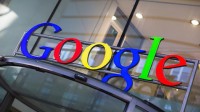Google Claims Major Breakthrough in Quantum Computing
October 25, 2019
Google stated it achieved “quantum supremacy,” a breakthrough in quantum computing that researchers have been pursuing since the 1980s. According to Google, at its Santa Barbara, California-based research lab, its quantum computer took 3 minutes and 20 seconds to complete a mathematical calculation that would take supercomputers over 10,000 years. Quantum computing is expected to unleash major advances in artificial intelligence and other complicated technologies. IBM, however, has disputed Google’s claim.
The New York Times reports that the University of Texas at Austin computer scientist Scott Aaronson, who reviewed Google’s paper in Nature magazine, noted that, “the original Wright flyer was not a useful airplane.” “But it was designed to prove a point,” he said. “And it proved the point.”

IBM disputed Google’s claim, stating that the calculation its quantum machine performed “could theoretically be run on a current computer in less than two and a half days — not 10,000 years.” IBM, along with Intel and Microsoft, are also developing quantum computing, and venture capitalists have invested $450+ million into startups.
Because quantum computing will likely be able to “overwhelm the encryption that protects computers,” countries consider it to be crucial to national security. For that reason, China has dedicated $400 million to a national quantum computing lab, prompting the Trump administration to introduce the National Quantum Initiative, with $1.2 billion earmarked for quantum research.
Over a century’s worth of quantum mechanics research has already gone into creating a quantum computer, which “operates in a completely different manner from regular computers.” Quantum computing “relies on the mind-bending ways some objects act at the subatomic level or when exposed to extreme cold, like the metal chilled to nearly 460 degrees below zero inside Google’s machine.”
IBM research lab head Dario Gil noted that quantum computing is “not about final and absolute dominance over classical computers.” Still, he added that “by 2020, we will be able to use [quantum computers] for commercial and scientific advantage.”

No Comments Yet
You can be the first to comment!
Sorry, comments for this entry are closed at this time.